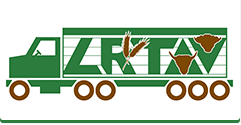In 1986 the National Foundation President of the Australian Livestock Transport Assocation (ALTA), Bruce McIvor, held a meeting in Albury with a view to encourage Victorian carriers to form an association as a means to gain well earned recognition by industry bodies and government and to improve the working conditions for Livestock Carriers. Gavin O’Sullivan was elected President of LTAV and through his guidance, hard work and dedication got the LTAV up and running.
The first LTAV meeting was in Bendigo and the aim was simple – band together those in the industry to bring about much needed changes, recognition and improvements in working conditions for livestock carriers.
From humble beginnings the LTAV grew to an Incorporated Association in 1996 and today represents around 200 rural and regionally based business owners. Our role is to represent our members at local, state and federal government levels on issues like roads, access, saleyards, on farm facilities, truck stops, animal welfare, fatigue management, driver training and law enforcement. The members are represented by people at the coalface of the industry, all LTAV members and operators in the Livestock Transport Industry.
Collaboration with the ALTA allows for greater input into issues shared by all states and highlights the difficulties when transporting livestock interstate under differing transporting regulations. This ensures that livestock carriers are well represented and our unique industry considered at all levels of government and by other industry stakeholders.
Livestock transportation brings together all aspects of the meat and livestock industry – from the Paddock to the Plate. Livestock transportation is a specialized field in the transport industry. A special breed of operator is required. Drivers and operators need to be highly skilled and proficient with animal welfare, effluent and hygiene management.
The condition and quality of loading facilities impacts the safety of loading and unloading of livestock at busy saleyards and on farm facilities. Such things as Loading Ramps needing repair affect both operators and the livestock.
Chain of Responsibility legislation has had a positive effect on livestock transport, ensuring all involved in the trade of livestock are accountable for both driver and animal welfare.
